Date: 04.10.2024
Venue: International Institute of Nursing and Research (IINR)
Introduction
The one-day Faculty Development Program (FDP) held at the International Institute of Nursing and Research (IINR) aimed to provide an intensive learning experience for the teaching faculty. In recognition of the need for continuous professional development in the evolving field of nursing education, this FDP sought to equip faculty members with the latest teaching methodologies, innovative tools, and clinical supervision techniques.
This initiative aligns with IINR’s mission of delivering high-quality education and ensuring that its faculty remains adept in both theoretical and practical aspects of nursing, ultimately benefiting the student community and the healthcare system at large.
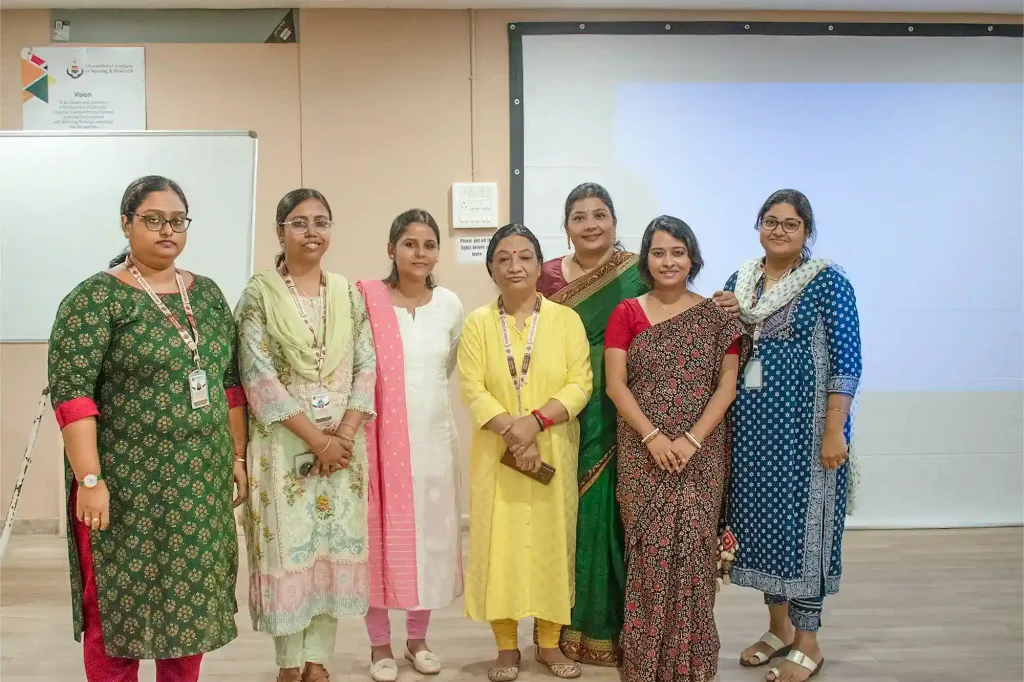

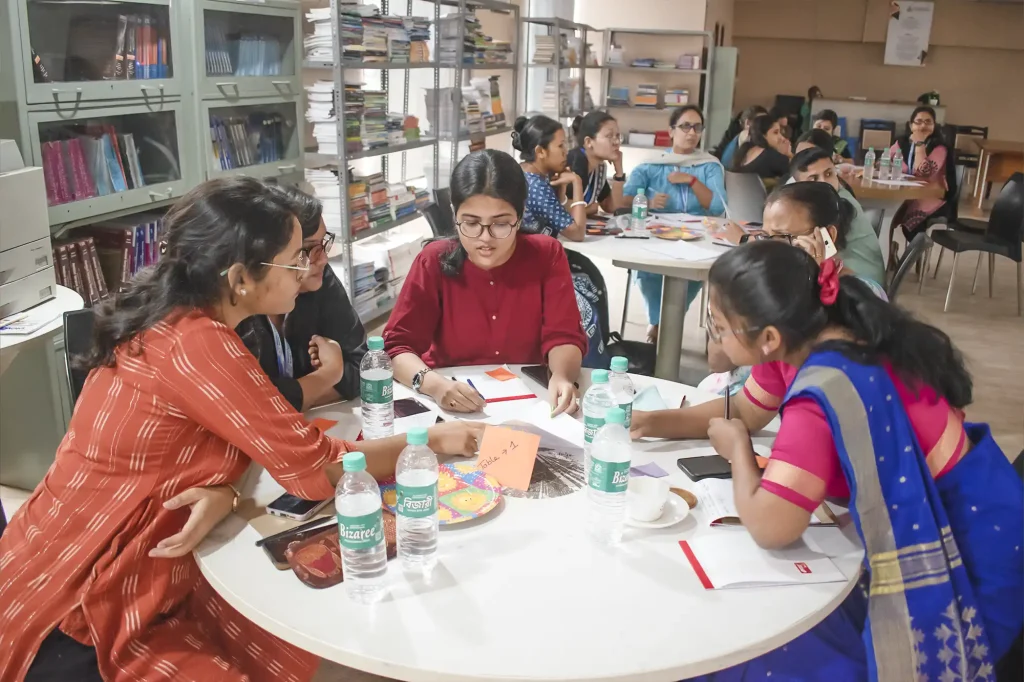
Objectives of the FDP
The primary objectives of the one-day FDP were:
- Enhance Teaching Skills: Equip the faculty with innovative teaching methods to improve classroom instruction and engagement.
- Technology Integration: Introduce faculty members to the latest digital tools and techniques for nursing education.
- Clinical Mentorship: Improve the clinical supervision skills of faculty to better support students during their practical training.
- Encourage Reflective Practice: Promote ongoing self-assessment and professional development for sustained growth in academic and clinical proficiency.
Program Structure and Schedule
The one-day FDP at IINR was structured to maximize impact within a short time frame. The program included a series of interactive sessions and workshops focused on core areas of faculty development. The schedule was designed to provide a balanced mix of theoretical discussions and hands-on learning experiences.

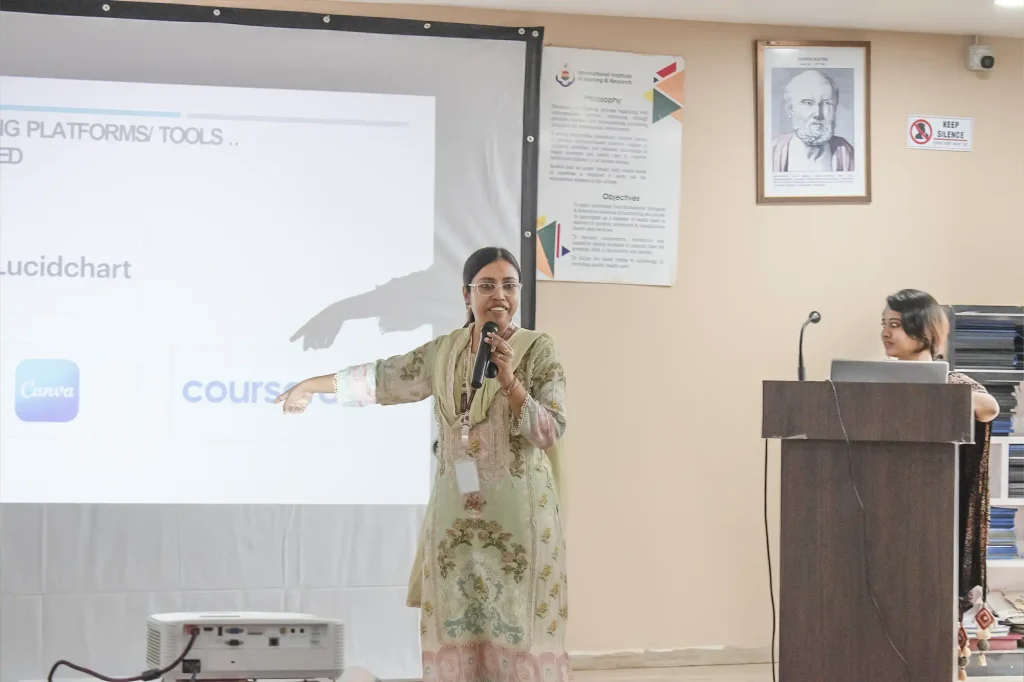
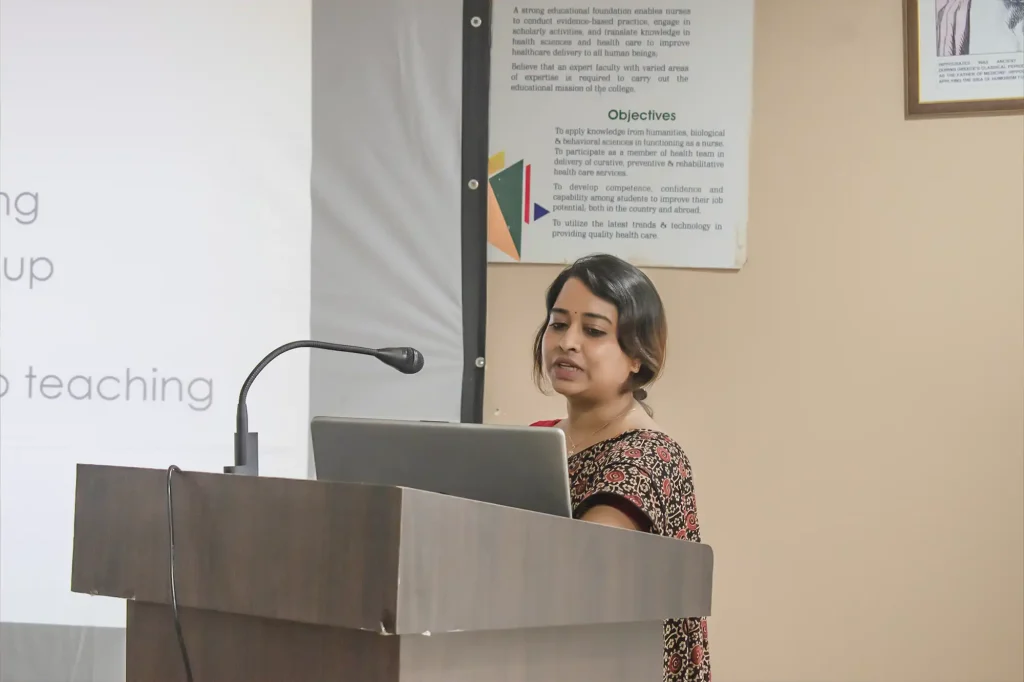
Large Group Discussion and Lesson Plan
Speaker: Dr. Aditi Saha
This session focused on the effective use of large group discussions in a classroom setting, which is a vital teaching method for engaging a larger number of students. Dr. Aditi Saha highlighted the importance of structuring discussions to foster interaction, allowing students to share their insights while ensuring the teacher maintains control over the flow of conversation.
Dr. Saha also discussed lesson planning, emphasizing how well-organized lesson plans can guide large group discussions and ensure that learning objectives are met. She explained the steps of crafting a lesson plan, which includes setting clear objectives, defining key points for discussion, and preparing assessment strategies to measure student understanding.
Small Group Teaching
Speaker: Dr. Anushree Das
In this session, Dr. Anushree Das addressed the principles and advantages of small group teaching. She discussed how smaller groups allow for more personalized attention, enhanced student participation, and the opportunity for collaborative learning. Dr. Das provided examples of activities suited to small group settings, such as case-based learning, problem-solving exercises, and peer teaching.
The session explored ways in which small group teaching could be implemented in clinical and theoretical settings, allowing students to better grasp complex concepts through interactive and hands-on approaches.
Self-Directed Learning (SDL)
Speaker: Dr. Suprasanna Bhattacharya
Dr. Suprasanna Bhattacharya led a session on Self-Directed Learning (SDL), which encourages students to take responsibility for their own learning. SDL promotes autonomy and critical thinking, as students independently identify their learning needs, set goals, and seek out resources to achieve those goals.
Dr. Bhattacharya emphasized the teacher’s role in facilitating SDL by providing guidance, offering resources, and creating a supportive environment. The session also covered methods for assessing SDL, ensuring that students remain on track while fostering a sense of ownership over their educational journey.



Use of Technology in Teaching and Learning
Speaker: Dr. Arpita Das
In this highly relevant session, Dr. Arpita Das explored the integration of technology in nursing education. With the increasing demand for digital literacy in healthcare, this topic highlighted how technology could be used to enhance the teaching-learning process. Dr. Das discussed various tools, such as Learning Management Systems (LMS), simulation software, and virtual platforms that provide interactive learning experiences.
Dr. Das also covered the benefits of using technology to offer flexible learning options, such as online courses and virtual classrooms, that allow students to learn at their own pace. The session further explored how educators can adapt to technological advancements to maintain student engagement and improve educational outcomes.
Group Activities
Speaker: Dr. Jyoti Paul
Dr. Jyoti Paul facilitated a session on group activities, which play a key role in promoting collaboration, communication, and teamwork among students. This session discussed different types of group activities, such as problem-based learning, role-playing, and project-based assignments, all designed to stimulate active participation and foster peer-to-peer learning.
Dr. Paul emphasized the role of group activities in building essential skills like leadership, conflict resolution, and cooperation. The session also touched on strategies for organizing and managing group activities to ensure that each student contributes to and benefits from the learning experience.
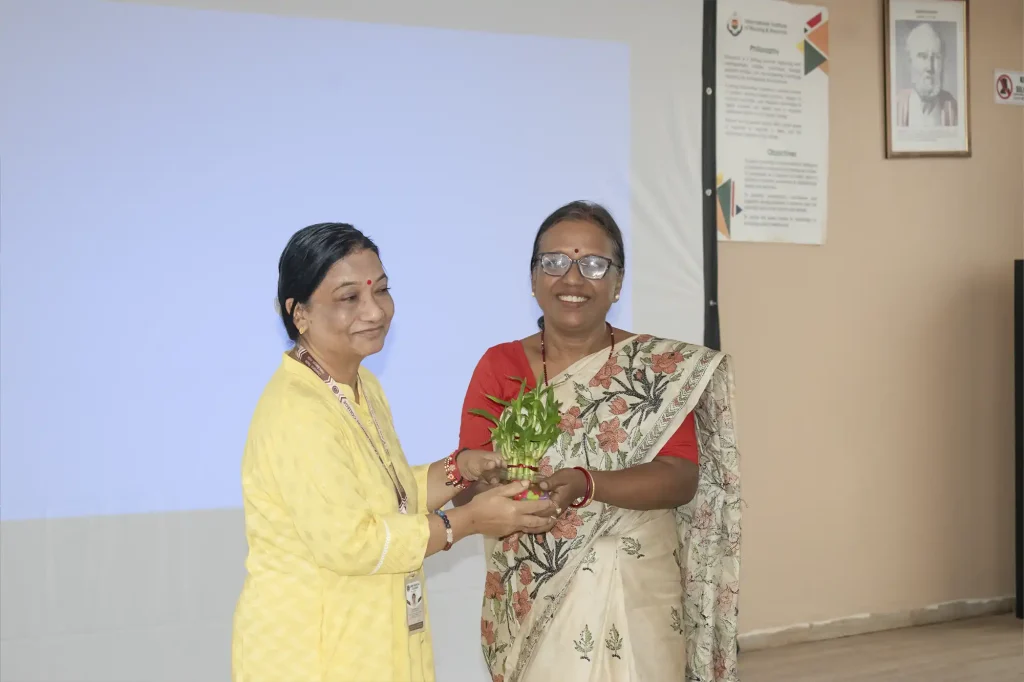
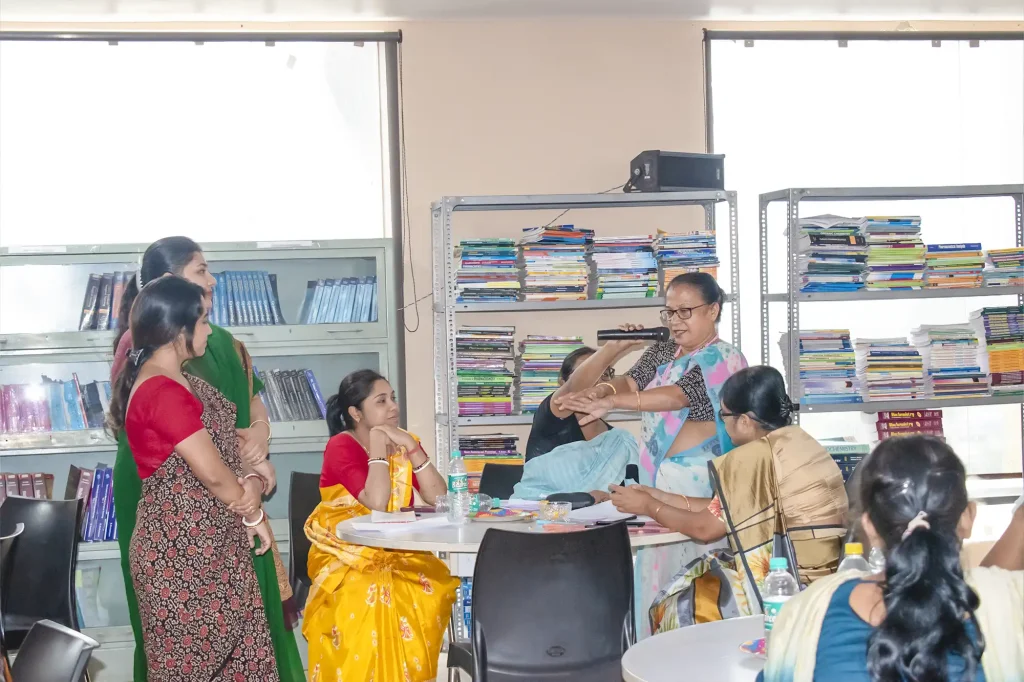

Principles of Assessment
Speaker: Prof. Dr. Amita Ray
In this session, Prof. Dr. Amita Ray covered the foundational principles of assessment in education. She emphasized the need for assessments to be fair, valid, and reliable, aligning with the learning objectives set out in the curriculum. Dr. Ray also discussed different types of assessments, such as formative, summative, and diagnostic assessments, and how each serves a distinct purpose in evaluating student progress.
The session included a discussion on how to design assessments that not only test knowledge but also promote deeper understanding and application of concepts.
Assessment of Cognitive Domain
Speaker: Dr. Aditi Saha
Dr. Aditi Saha led the session on the assessment of the cognitive domain, which focuses on evaluating students’ intellectual abilities, including knowledge comprehension, application, analysis, and synthesis. Dr. Saha introduced Bloom’s Taxonomy as a framework for designing assessments that target different cognitive levels, from basic recall of information to complex problem-solving.
She provided practical examples of cognitive assessments, such as multiple-choice questions, case studies, and essays, that can be used to measure a range of cognitive skills. Dr. Saha also discussed how to create rubrics to assess higher-order thinking in nursing students.


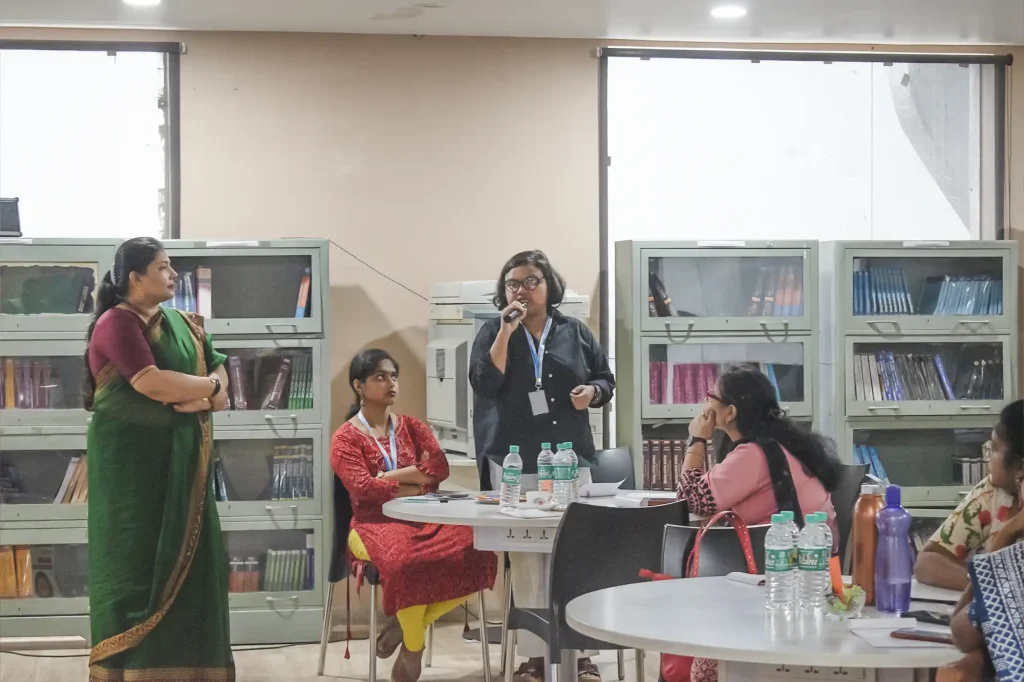
Assessment of Skills
Speaker: Prof. Dr. Amita Ray
Prof. Dr. Amita Ray addressed the critical task of assessing practical skills, particularly in nursing education where clinical competencies are paramount. The session focused on Objective Structured Clinical Examinations (OSCEs), checklists, and skill demonstrations as tools to assess students’ ability to perform specific tasks in a clinical setting.
Dr. Ray also provided guidelines on how to create skill-based assessments that are both objective and comprehensive, ensuring that students meet the required standards of competence. She highlighted the importance of providing constructive feedback to students, helping them improve their clinical abilities.
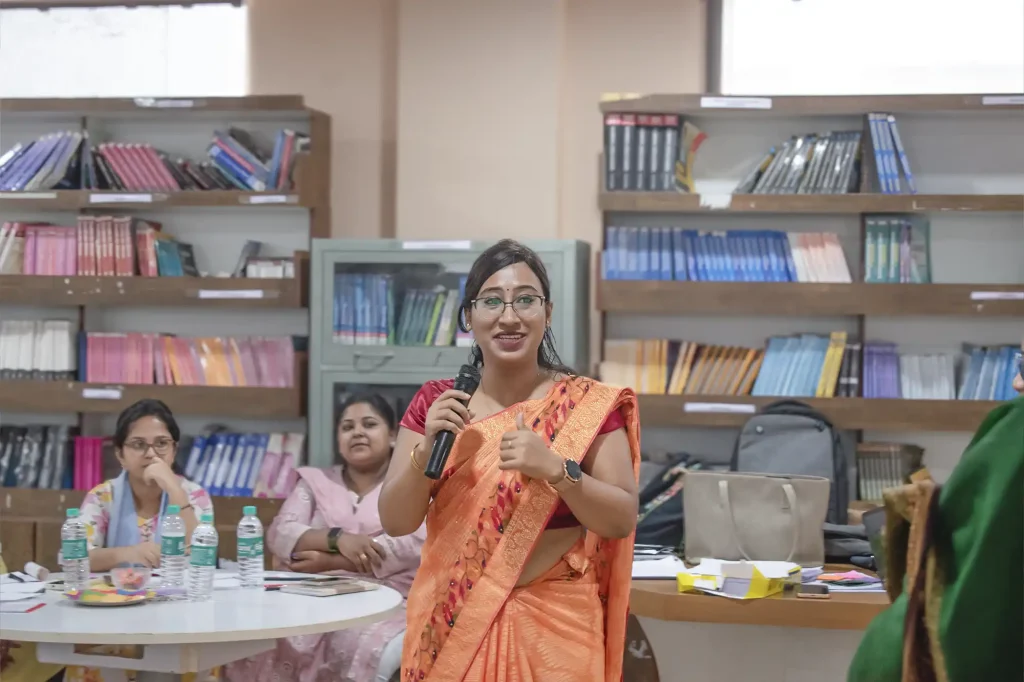

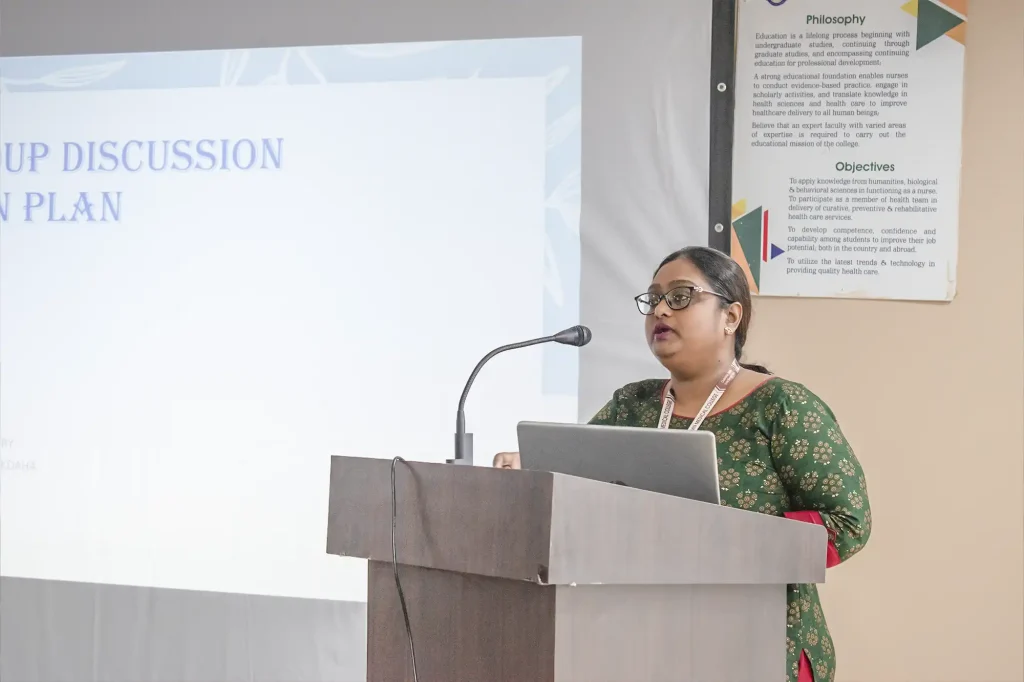
Blueprinting
Speaker: Dr. Aditi Saha
In the blueprinting session, Dr. Aditi Saha explained the process of aligning assessments with the learning objectives and the course content. Blueprinting helps ensure that exams are balanced, covering all essential areas of the curriculum in the appropriate proportions.
Dr. Saha guided the faculty through the steps of developing an assessment blueprint, which involves mapping questions to specific learning outcomes and ensuring a range of cognitive levels are tested. This approach ensures that assessments are comprehensive and accurately reflect the breadth of knowledge and skills expected of students.
Group Activities
Speaker: Prof. Dr. Amita Ray
Dr. Amita Ray concluded the FDP with another set of group activities, this time focusing on assessment techniques. Faculty members participated in activities designed to help them practice creating assessment items, such as writing exam questions, developing rubrics for skill assessment, and designing clinical scenarios for OSCEs.
These activities provided a hands-on experience in assessment design, ensuring that faculty could immediately apply the principles discussed during the earlier sessions.
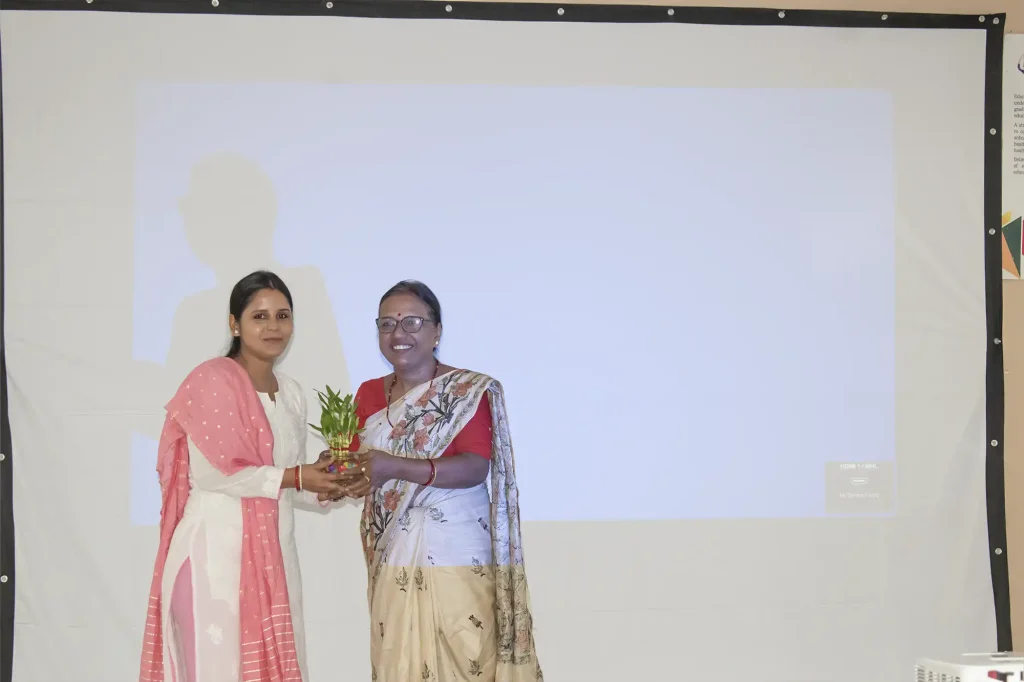
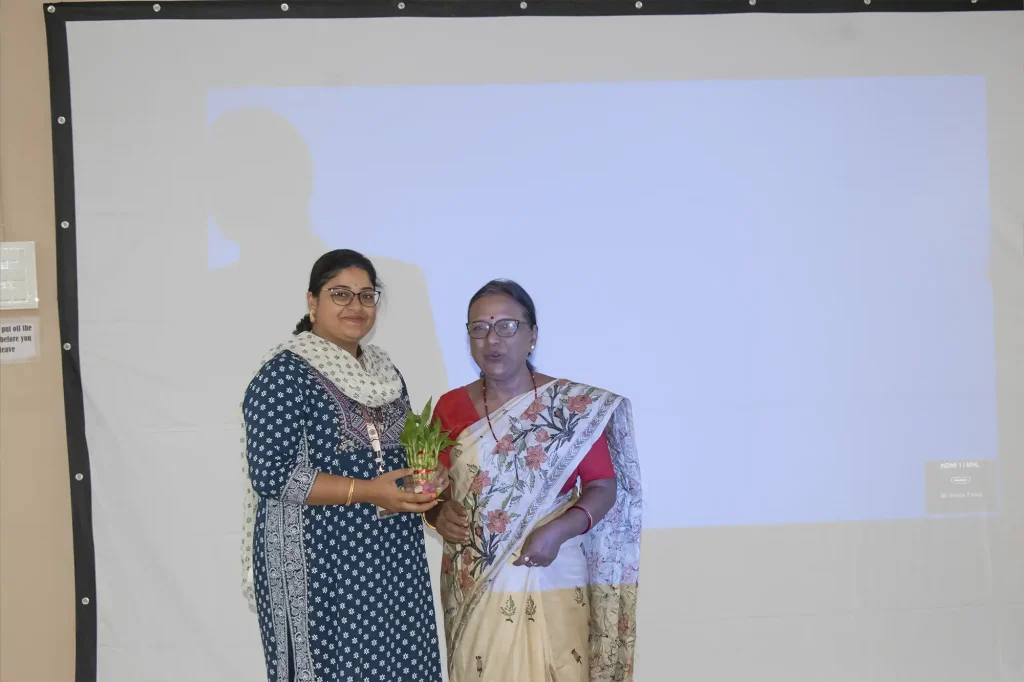
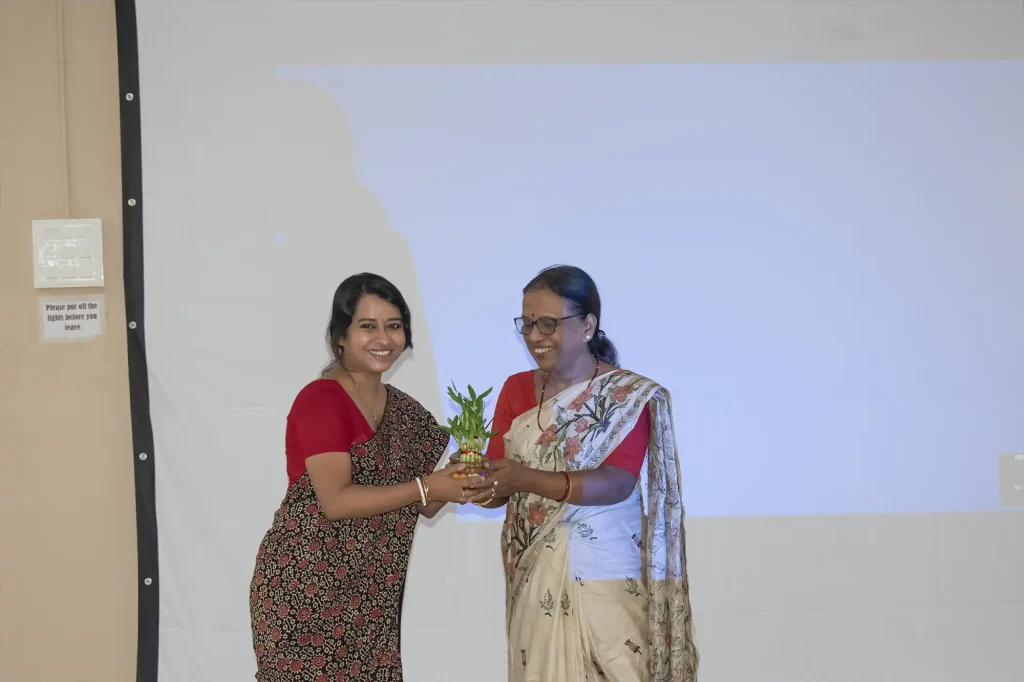
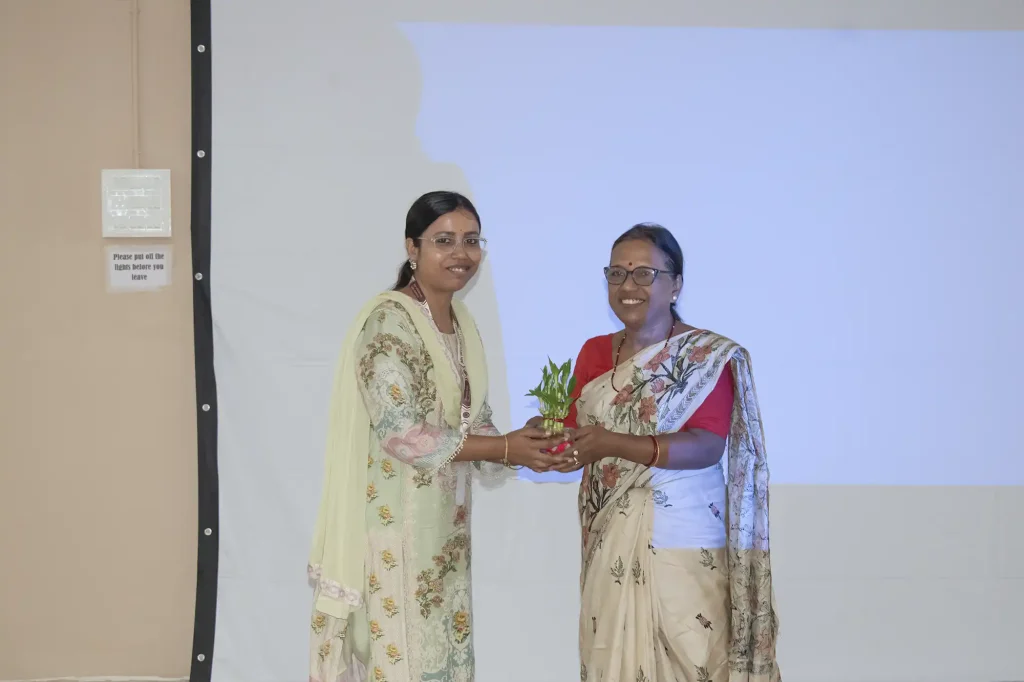
Participant Feedback
Feedback from the faculty members who participated in the FDP was overwhelmingly positive. Many participants expressed their appreciation for the practical focus of the sessions and the relevance of the topics covered.
Here are some examples of the feedback received:
- “The session on innovative teaching strategies gave me a fresh perspective on how I can make my classes more engaging for students.”
- “Learning about digital tools and their applications in nursing education was highly beneficial. I look forward to integrating these into my classroom activities.”
- “The clinical mentorship training has greatly enhanced my confidence in guiding students through their practical placements.”
Outcomes and Impact
The one-day FDP at IINR achieved its goal of providing faculty with the necessary tools to improve their teaching and clinical supervision capabilities. Immediate outcomes include:
- Increased enthusiasm for implementing student-centered learning techniques in the classroom.
- Improved use of digital tools for enhancing student engagement and assessment.
- Strengthened faculty mentorship during clinical placements, ensuring students gain practical, real-world experience.
The long-term impact is expected to reflect in better student performance, higher quality of clinical education, and improved faculty collaboration in sharing best practices.
The one-day Faculty Development Program held at the International Institute of Nursing and Research (IINR) was a great success. The program effectively addressed the pressing needs of the faculty by focusing on key areas such as innovative teaching methodologies, the integration of technology in education, and clinical mentorship.
By fostering a culture of continuous professional development, the FDP has significantly contributed to the growth of the faculty and the institution as a whole. Moving forward, the knowledge gained during this program is expected to have a lasting positive impact on the quality of education provided to nursing students at IINR.
